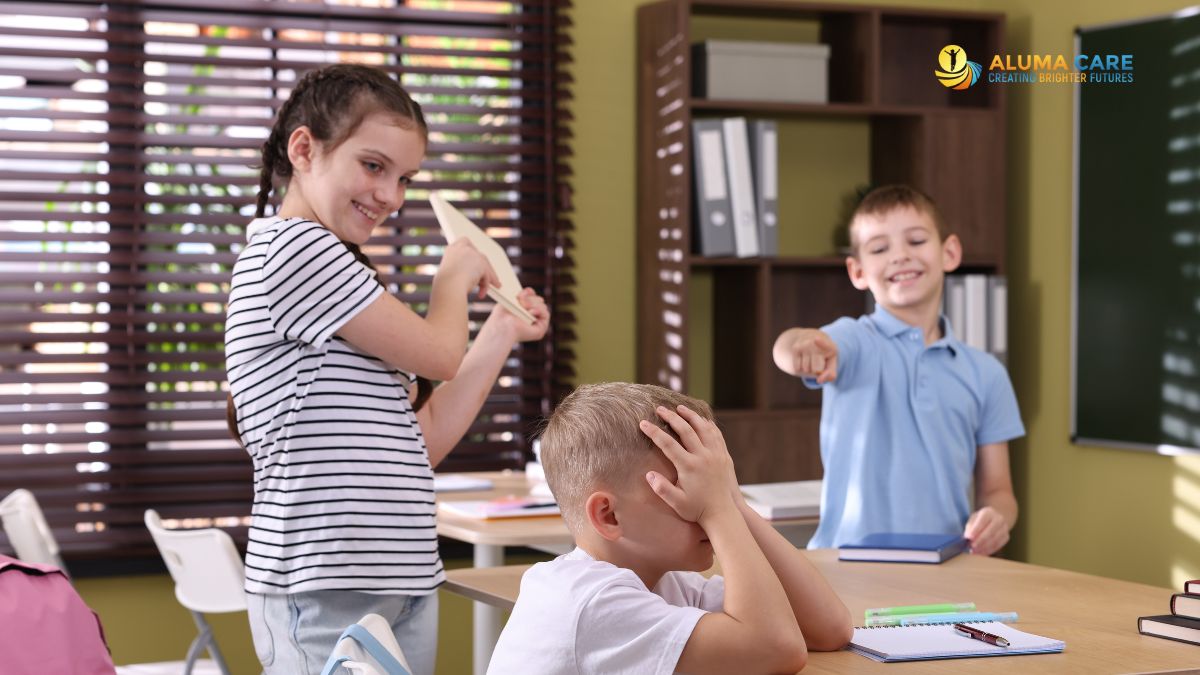Introduction to ABA Therapy and Social Skills
The development of social skills in children with autism is a fundamental challenge that impacts their ability to form meaningful connections and thrive in social settings. Applied Behavior Analysis (ABA) therapy emerges as a powerful intervention, offering an evidence-backed approach to enhance these crucial skills through systematic and personalized strategies. This article delves into the methodologies, benefits, and unparalleled effectiveness of ABA therapy in fostering social development among children on the autism spectrum.
Understanding ABA Therapy's Impact on Social Skills

What is ABA therapy and how can it help improve social skills?
ABA therapy, or Applied Behavior Analysis, is an evidence-based intervention designed to enhance the social skills of children with autism. This therapy focuses on teaching effective communication, interaction, and understanding of social norms using various techniques.
Some of the methods employed include:
By addressing challenges such as communication difficulties, difficulty with eye contact, and understanding non-verbal cues, ABA well-equipped children to forge connections with their peers. Research indicates that successful participation in ABA can lead to significant improvements in self-confidence and the ability to build relationships, ultimately substituting negative behaviors with appropriate social interactions.
Personalization and techniques in ABA
ABA therapy is tailored to cater to each child’s unique needs, which is essential for fostering independence and social engagement. Each program begins with a thorough assessment to identify individual strengths and deficits in social skills.
Key techniques in ABA include:
These personalized interventions facilitate learning and help children navigate social environments effectively, promoting long-term social development.
Key Techniques in ABA for Social Skill Acquisition

What are some examples of social skill acquisition techniques used in ABA therapy?
ABA therapy utilizes various techniques to effectively teach social skills to children with autism. One prominent method is Behavioral Skills Training (BST). This involves several phases:
Another vital technique is Discrete Trial Training (DTT). This structured method breaks down social skills into smaller, manageable tasks. For instance, practicing turn-taking might involve discrete opportunities where the child engages in games that require sharing. DTT effectively assesses and reinforces each component of the skill.
Natural Environment Teaching (NET) encourages engaging in natural settings, facilitating social interactions as they occur spontaneously. This technique utilizes incidental teaching moments—integrating learning into regular activities rather than isolated practice. It enables children to apply their social skills in real-world contexts, promoting generalization of learned behaviors.
Together, these techniques enable comprehensive skill development, fostering greater independence and improving social interactions.
Addressing Social Challenges Faced by Individuals with Autism

What challenges do individuals with autism face in social contexts, and how can ABA therapy address these challenges?
Individuals with autism often encounter significant hurdles in social situations. Common challenges include:
Applied Behavior Analysis (ABA) therapy effectively addresses these challenges through structured and individualized strategies. Here are some key methods utilized in ABA:
By focusing on these tailored interventions, ABA therapy not only improves social interactions but also builds self-confidence, enabling individuals with autism to connect more effectively with others in their environments.
Social Learning Theory and Practice in ABA

What is the social learning theory in ABA?
Albert Bandura's social learning theory is a foundational concept in Applied Behavior Analysis (ABA). It emphasizes that observation and modeling are vital for the learning process. According to Bandura, individuals can learn new behaviors by watching others rather than only through direct experiences. For effective learning, active engagement is required: individuals must pay attention, remember the observed behavior, reproduce it, and feel motivated to learn.
In the context of ABA, this theory translates into practical strategies. Techniques such as behavioral modeling and role-playing are employed, allowing individuals to observe and imitate desired social behaviors in a supportive setting. This method not only enhances learning but also promotes social interaction and competence.
Furthermore, the concept of Communities of Practice (CoPs) complements Bandura's theory. CoPs emphasize the significance of social interactions in professional learning and development. They consist of three components: a domain of interest, a community of members who interact regularly, and a shared practice that evolves over time. These elements create a collaborative environment essential for effective skill acquisition and personal growth.
Goals and Progress in Social Skills Development

What are the goals of social skills development in ABA therapy?
The goals of social skills development in ABA therapy are centered on fostering successful interactions between individuals, particularly in social settings. Essential objectives include:
ABA programs detail specific, measurable goals that are structured to help children progress from basic to more complex social skills. These may include:
How is progress tracked in ABA therapy?
Ongoing assessments play a critical role in tracking progress in ABA therapy. Practitioners regularly evaluate individual performance against set goals, allowing:
This continuous feedback loop ensures that interventions are tailored effectively, enhancing each child's learning experience.
What is the impact on communication skills?
Effective social skills training greatly impacts communication abilities. Enhanced skills lead to:
With structured support and measurable goals, the ABA approach equips children with essential tools to flourish socially and communicate more effectively.
Comparative Overview of Other Social Skill Therapies
What other therapies, apart from ABA, are effective in teaching social skills?
Apart from Applied Behavior Analysis (ABA), Social Skills Training (SST) is a notable therapy for teaching social skills, especially among individuals with developmental disabilities. SST provides structured environments where individuals can engage in social interactions through techniques like role-playing, behavioral rehearsal, and positive reinforcement. This structured format helps individuals practice various social scenarios, crucial for developing effective communication.
Cognitive Behavioral Therapy (CBT) can also play a significant role, particularly when combined with SST. CBT addresses underlying thought processes that contribute to social anxiety, thus enhancing social skills outcomes. Additionally, specialized programs like the PEERS program at UCLA have shown effectiveness in improving social functioning for individuals with autism, reinforcing the importance of tailoring interventions to meet each individual's unique needs.
The personalization of interventions is key, ensuring that therapeutic approaches accommodate the individual's communication style and specific challenges. Each method, including ABA, SST, and CBT, contributes uniquely to fostering social competence, enabling individuals to build meaningful relationships.
The Transformative Power of ABA Therapy
ABA therapy stands out as a transformative tool for improving social skills among children with autism. By methodically breaking down social interactions into teachable moments and emphasizing reinforcement, ABA provides an essential framework for addressing the diverse needs of individuals on the autism spectrum. The detailed focus on personalization ensures that interventions remain relevant and effective, maximizing the potential for meaningful social engagement. As research continues to validate its benefits, ABA therapy remains a cornerstone in the journey toward comprehensive social development, fostering independence and enhancing the quality of life for children with autism and their families alike.









.jpg)
.jpg)
.jpg)
.jpg)
.jpg)
.jpg)







.png)